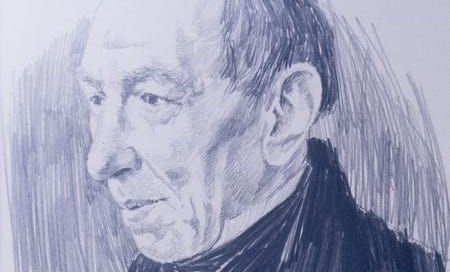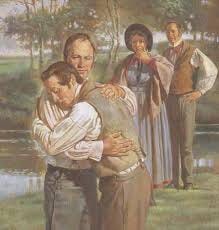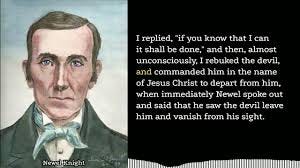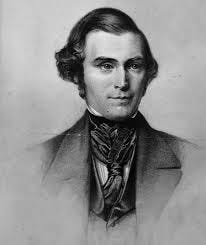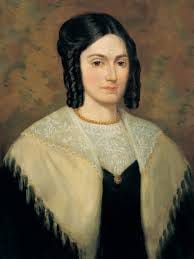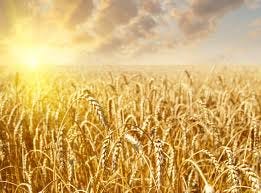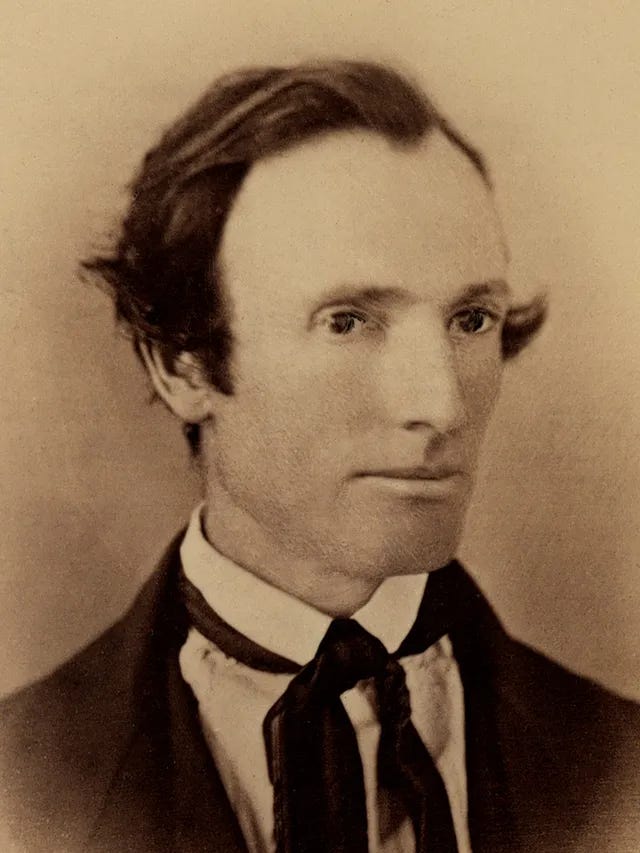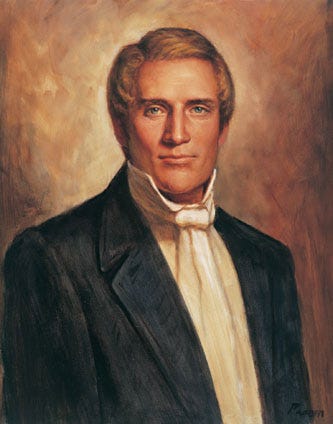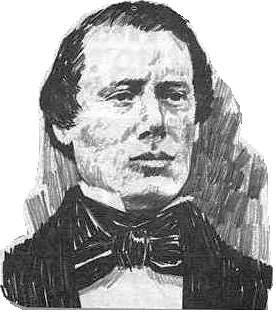Exhort and Strengthen the Church
Historical Background and Reflections on Doctrine and Covenants 23
There are many amazing events in the early history of the Church, too many to record. But the books that I mentioned in previous posts (see here and here) contain records of these events, such as:
The baptism of Joseph Smith, Sr. and Lucy Mack Smith, and Joseph Smith’s rejoicing
The miraculous healing of Newel Knight
The conversion and baptism of many others, including Orrin Porter Rockwell, Martin Harris, Newel Knight, several of Joseph Smith, Jr.’s siblings, and Emma Smith
Joseph Smith’s arrests, imprisonments, and escapes
The conversion of William W. Phelps and Parley P. Pratt
Many early Saints kept careful records of their experiences. For example, in 1873, Orson Pratt recalled the historical setting of the revelation that is now contained in D&C 22:
In the early days of this Church there were certain persons, belonging to the Baptist denomination, very moral and no doubt as good people as you could find anywhere, who came, saying they believed in the Book of Mormon, and that they wished to come into our Church. The Prophet Joseph had not, at that time, particularly inquired in relation to this matter, but he did inquire, and received a revelation from the Lord [section 22] … These Baptists had to be re-baptized: there was no other way to get into this Church. (The Revelations of the Prophet Joseph Smith, Lyndon W. Cook, p. 33)
This week we are studying Doctrine and Covenants 23-26. Each section is unique, and I think that it makes sense to tackle one section at a time, unfolding the history to the best of my knowledge along the way. The first volume of Saints helps us to understand the historical context for the revelations that we will study this week:
The Sunday after the church was organized, Oliver preached to the Whitmer family and their friends in Fayette. Many of them had supported the Book of Mormon translation but had not yet joined the church. After Oliver finished speaking, six people asked him to baptize them in a nearby lake.1
As more people joined the new church, the immensity of the Lord’s commission to take the gospel to the world weighed on Joseph. He had published the Book of Mormon and organized the Lord’s church, but the book was selling poorly and those who sought baptism were mostly his friends and relatives. And Joseph still had much to learn about heaven and earth.
People who joined the church often came seeking the gifts of the Spirit and other miracles they read about in the New Testament.2 But the restored gospel promised believers something even greater than wonders and signs. Benjamin, a wise prophet and king in the Book of Mormon, had taught that if people yielded to the Holy Spirit, they could shed their sinful nature and become saints through the Atonement of Jesus Christ.3
For Joseph, the challenge now was how to move the Lord’s work forward. He and Oliver knew they had to cry repentance to all people. The field was ready to harvest, and the worth of every soul was great in the eyes of God. But how could two young apostles—a farmer and a schoolteacher, both in their early twenties—move such a great work forward?
And how could a small church in rural New York rise above its humble beginnings and grow to fill the entire world?
From these small and simple things, these humble beginnings, great things were brought to pass. One by one, souls were brought unto Christ through the preaching of the Gospel and by the power of the Book of Mormon. As the Church grew, the opposition also mounted. The growth of the early Church was not only in numbers, but also in the faith and understanding of its new members and investigators. D&C 23 contains a series of five revelations given through the Prophet Joseph Smith at Manchester, New York, in April of 1830 to the following individuals:
Oliver Cowdery
Hyrum Smith
Samuel H. Smith
Joseph Smith, Sr.
Joseph Knight, Sr.
As with others before them, these five friends and family members of the Prophet earnestly desired to learn their respective duties for building up the Kingdom of God upon the earth, and the Prophet Joseph Smith inquired of the Lord and received a revelation for each person. In essence, they were each called to preach, exhort, and strengthen the Church. These revelations were originally printed as five separate chapters in The Book of Commandments, all dated April 6, 1830, and therefore we can examine them one revelation at a time.
The Revelation to Oliver Cowdery:
Behold, I speak unto you, Oliver, a few words. Behold, thou art blessed, and art under no condemnation. But beware of pride, lest thou shouldst enter into temptation.
Make known thy calling unto the church, and also before the world, and thy heart shall be opened to preach the truth from henceforth and forever. Amen. (D&C 23:1-2)
Oliver Cowdery was a good man, a faithful servant of God, and a great help to the Prophet Joseph Smith. He was the first preacher of the Church of Jesus Christ, and the Lord blessed Him greatly. These two short verses contain the counsel and blessings of the Lord to Oliver, and there is much that we can learn from them.
For example, it stands out to me that the Lord reassured Oliver that he was under no condemnation. Why would the Lord reassure Oliver in this way? Oliver may have been concerned about His standing before the Lord or wondered about how he was doing in the Lord’s eyes. The Lord knew Oliver, reassured him, and blessed him.
I also find it significant that the Lord warned Oliver to beware of pride. Oliver had recently finished transcribing the entire Book of Mormon, not just once, but twice. One of the central messages of the Book of Mormon is to warn its readers to beware of pride, the sin that led to the complete destruction of two great civilizations, the Jaredites and the Nephites.
The Lord’s blessing to Oliver as he made known his calling unto the Church as also before the world is also remarkable. The Lord promised to open Oliver’s heart - not just his mind or his mouth - in order to preach the truth. Furthermore, this was a blessing to preach the truth, not just for a time, but “henceforth and forever.” That is a remarkable promise and blessing.
Smith and Sjodahl comment as follows on this section and this revelation to Oliver Cowdery:
The brethren here mentioned being anxious to learn the mind and the will of the Lord concerning them, this Revelation was given. It is perfectly clear that these intimate friends and close associates of the Prophet, were fully convinced that God spoke through him. If not, they would not have asked him to inquire of the Lord for them.
Thou are blessed] Oliver Cowdery was highly faovred by the Lord. He was one of the first six members of the Church. He was an Elder and an Apostle.* He was the first messenger to the world from the Church. He took a leading part in the affairs of the Church. On the 18th of December, 1833, when the printing press was dedicated at Kirtland, the Prophet Joseph Smith recorded the following: “Blessed of the Lord is Brother Oliver; nevertheless, there are two evils in him that he must needs forsake, or he cannot altogether forsake [escape?] the buffetings of the adversary. If he forsake these evils, he shall be forgiven, and shall be made like unto the bow which the Lord hath set in the heavens; he shall be a sign and an ensign to the nations” (Historical Record, p. 199) What these two evils were the Prophet does not place on record. However, on the 11th of April, 1838, charges were preferred against him which show that pride and covetousness were the sins that beset him. He did not heed this Revelation warning him of pride, and the consequence was that he lost his membership in the Church. Later in life he became humble and returned to the Church. To the High Council that considered his application for reinstatement, he said, “brethren, for a number of years I have been separated from you. I now desire to come back. I wish to come humbly and to be one in your midst. I seek no station, I only wish to be identified with you.” He was re-baptized (Historical Record, p. 201).
*However, he was not at any time a member of the Council of the Twelve. The term “apostle,” as applied to him, signified that he was a special witness of the Savior and the origin of the Book of Mormon.
The Revelation to Hyrum Smith:
Behold, I speak unto you, Hyrum, a few words; for thou also art under no condemnation, and thy heart is opened, and thy tongue loosed; and thy calling is to exhortation, and to strengthen the church continually. Wherefore thy duty is unto the church forever, and this because of thy family. Amen. (D&C 23:3)
Remember that in an earlier revelation to Hyrum regarding his duty, the Lord commanded:
Seek not to declare my word, but first seek to obtain my word, and then shall your tongue be loosed; then, if you desire, you shall have my Spirit and my word, yea, the power of God unto the convincing of men. (D&C 11:21)
Hyrum obeyed the Lord, and as a result his heart was opened, and his tongue was loosed. The Lord’s revelation to Hyrum was simple and succinct because He knew that He could trust Hyrum.
Smith and Sjodahl comment as follows on this this revelation to Hyrum Smith:
Thy duty is unto the Church for ever] Hyrum Smith, the beloved brother of Joseph, successfully proclaimed the gospel, after his tongue had been loosened. On November 7, 1837, he was appointed a counselor to the Prophet instead of Fred. G. Williams, who was rejected by the Conference at Far West. On January 19th, 1841, he was appointed Patriarch to the Church, for which office he had been blessed by his father, it being his by birthright. He was continually strengthening the Church. See also notes, Sec. 11.
“There is another thing of great significance in this brief blessing to Hyrum Smith (Sec. 23:3) which is: “Wherefore thy duty is unto the church forever, and this because of thy family. Amen." It is doubtful if the Prophet Joseph fully understood the meaning of this expression when this revelation was given. In later years it was made clear. Evidently it has reference to the office of Patriarch and in this office, it was his duty and that of his family forever.” (“Church History and Modern Revelation,” series 1, p. 113)
The Revelation to Samuel H. Smith:
Behold, I speak a few words unto you, Samuel; for thou also art under no condemnation, and thy calling is to exhortation, and to strengthen the church; and thou art not as yet called to preach before the world. Amen. (D&C 23:4)
Who was Samuel H. Smith?
We haven’t learned too much about him thus far, but it just occurred to me as I was writing that one of Nephi’s brothers was also named Sam. I wonder what his experience was as he read the Book of Mormon and learned of Nephi’s brother Sam and his diligent efforts to support his brother. Lyndon W. Cook’s The Revelations of the Prophet Joseph Smith contains a helpful biographical note on Samuel Harrison Smith:
Son of Joseph Smith and Lucy Mack. Born 13 March 1808 at Tunbridge, Orange County, Vermont. Baptized 25 May 1829. One of Eight Witnesses to Book of Mormon June 1829. Ordained elder 9 June 1830. Traditionally recognized as first missionary of Church. Sent with Orson Pratt to preach in Kirtland, Ohio; arrived 27 February 1831. Ordained high priest 3 June 1831. Returned to Ohio September 1831. Appointed to serve mission to “eastern lands” with William E. McLellan 25 October 1831. This mission was short-lived becaue of McLellan’s “murmuring.” Called with Orson Hyde to preach in the “eastern countries” 25 January 1832. On this eleven-month mission baptized sixty converts. Attended School of Prophets in Kirtland. Assisted in laying foundation stones for Kirtland Temple July 1833. Worked on Kirtland Temple. Member of Kirtland high council 1834-38. Married Mary Bailey 13 August 1834. Four children: Susanna Bailey, Mary Bailey, Samuel Harrison Bailey, and Lucy Bailey. Owned land in Kirtland and paid personal property tax on two cows 1834-35. Participated in Kirtland Temple dedication 1836. Served mission to New York in summer of 1836. Member of and owned stock in Kirtland Safety Society. Moved to Far West, Missouri, March 1838. Later settled at Marrowbone in Daviess County. Participated in Battle of Crooked River October 1838. Located in Quincy, Illinois, 1839. Later moved onto George Miller’s farm at Macomb, McDonough Country, Illinois. Moved to Nauvoo about 1840. Called to Presiding Bishopric of Church January 1841. Called as bishop of Nauvoo Ward. Elected alderman in City of Nauvoo February 1841. Member of Nauvoo Legion. Served mission in Scott Country, Illinois, 1841. Married Levira Clark of Geneva, Scott County, Illinois, 1841. Three children: Levira Annette Clark, Louisa Clark, and Lucy Jane Clark. Initiated into Masonry 9 April 1842. Moved to Plymouth, Illinois, in fall of 1842. Received endowment 17 December 1843. Died 30 July 1844 at Nauvoo, Hancock County, Illinois. (p. 34, see also p. 126 for source notes)
Smith and Sjodahl comment as follows on this this revelation to Samuel H. Smith:
Samuel H. Smith, the fourth son of Joseph Smith, Sen., was born on the 13th of March, 1808, and was baptized on the 15th of May, 1829, the same day as Joseph and Oliver were baptized. He was one of the first six members of the Churhc, and one of the Eight Witnesses. On the 13th of June, 1830, he was sent on a mission with some copies of the Book of Mormon. Tracting was uphill work, then as now. Samuel was turned away from most of the houses he approached. At an inn the landlord abused him as soon as he stated what the Book of Mormon contained, calling him a liar and ordering him out of the house. Sick at heart, he left the place and washed his feet in a brook as a testimony against that man; then he laid his weary head to rest under an apple tree. He learned, a few days later, that the inn-keeper had died of smallpox.
Samuel H. Smith had some wonderful experiences. After the engagement with a mob, known as the Crooked River battle, he went to Illinois, in company with about twenty others, through a wild part of the country. They were pursued by fifty well-armed men, who had orders to bring them back, dead or alive. Soon only four miles of prairie lay between them and their pursuers. Then a snow storm came, with such a fury that they were completely hidden from the enemy, and escaped. Later on, their provisions gave out, and they subsisted on lynne buds and slippery elm bark. One evening the company appointed Samuel H. Smith their president, and prayed to the Lord for a revelation. That night the Spirit of the Lord came upon him, and he said: “Thus saith the Lord; my servant Joseph is not injured, nor any of his brethren that are with him; but they will all be delivered out of the hands of their enemies; your families are all well, but anxious about you. Let your hearts be comforted, for I, the Lord, will provide food for you on the morrow.” This Revelation proved true in every detail. The next day they came upon an Indian camp, where they received a supply of good bread (Historical Record, p. 618) On his deathbed Joseph Smith, Sr., gave his son Samuel this blessing:
“Samuel, you have been a faithful and obedient son. By your faithfulness you have brought many into the Church. The Lord has seen your diligence, and you are blessed, in that He has never chastised you, but has called you home to rest; and there is a crown laid up for you, which shall grow brighter and brighter unto the perfect day.”
Samuel H. Smith died July 30th, 1844, shortly after his two brothers, Joseph and Hyrum, had passed beyond the veil, martyrs for the cause of truth and liberty. (pp. 120-21)
The Revelation to Joseph Smith, Sr.
Behold, I speak a few words unto you, Joseph; for thou also art under no condemnation, and thy calling also is to exhortation, and to strengthen the church; and this is thy duty from henceforth and forever. Amen. (D&C 23:5)
Short and sweet.
Smith and Sjodahl comment as follows on this this revelation to Joseph Smith, Sr.:
Joseph Smith, Sr., the father of the Prophet, was born July 12th, 1771. He was the first to receive the testimony of his illustrious son, after the Angel had visited the Prophet on the 22nd of September, 1823, and he was baptized the 6th of April, 1830. On December 18th, 1833, he was ordained a Patriarch, and office that was to continue from father to son. (See Section 107:40; 124:91) He died September 14, 1840.
The Revelations to Joseph Smith, Sr., and Hyrum Smith contain an identical prediction to the effect that it was their calling to strengthen the Church forever. This could not refer to their personal ministry on Earth, but it has been fulfilled in the ministry of their descendants, and will, no doubt, come true, as the Revelations say, “forever.” (pp. 121-22)
In my study of the Doctrine and Covenants and early LDS Church history I will pay close attention to Joseph Smith and his family in particular, for reasons that I am also exploring in another section of my Substack. I believe that there is yet much to be revealed, many great and important things, about the Lord’s plans for the Smith family. Furthermore, it is instructive to discover the characters and relationships of those who gathered around the Prophet Joseph Smith in the early days of the Restoration.
The Revelation to Joseph Knight, Sr.
Behold, I manifest unto you, Joseph Knight, by these words, that you must take up your cross, in the which you must pray vocally before the world as well as in secret, and in your family, and among your friends, and in all places.
And, behold, it is your duty to unite with the true church, and give your language to exhortation continually, that you may receive the reward of the laborer. Amen. (D&C 23:6-7)
Smith and Sjodahl comment as follows on this this revelation to Joseph Knight, Sr.:
Joseph Knight, Sr. was of great assistance to the Prophet during the early days of persecution. In this Revelation he is enjoined to pray vocally, before the world, and not only in secret; to join the Church, and to labor in the vineyard. He obeyed, and was baptized in June, 1830. See also Sec. 12)


